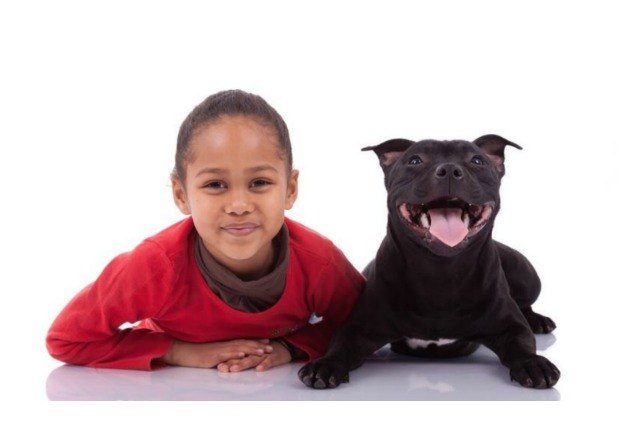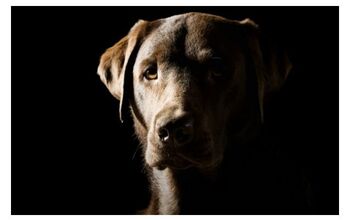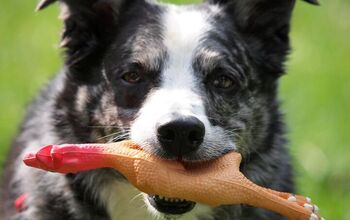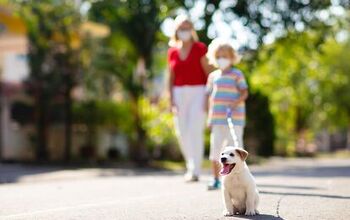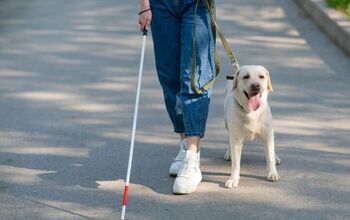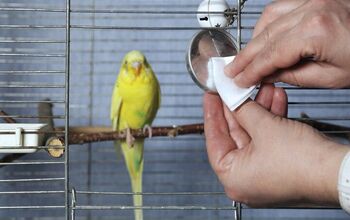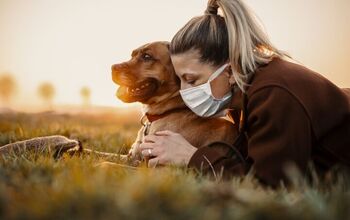Doctors Say Pet Abuse Should Raise Red Flags About Domestic Violence

This week, pediatrician Dr. Tara L. Harris warned that reports of pet abuse in should raise concern about the possibility of physical and/or emotional health and welfare of children in the pet’s home. She encouraged members of the American Academy of Pediatrics (AAP) to join with members of the American Veterinary Medical Association (AVMA) to watch for signs of abuse.
Dr. Harris said that if pediatricians are told of pet abuse or the threat of pet abuse in a family home, it may not immediately be a sign of potential harm to children or other family members of the home. Yet, it needs to be, she encourages, as more research is revealing that there are often dangers to children or other family members in homes where pets are abused or threat of abuse exists.
Related: Protection Dogs Offer a New Kind of Support to Domestic Abuse Victims
What effect pet abuse in a home has on a child is not concrete. Pediatricians and vets alike warn about domestic abuse of pets with regard to harm that may come to children, even if not directed at them, simply because they’ll intervene to protect their pet and get hurt in the process. As well, even if the abuse is not directed at the child, but the pet, the emotional trauma and scarring that leaves on children is significant, though to what level, remains unknown. Some experts have reported that children who witness animal abuse in their homes may be more than eight times as likely to commit acts of domestic violence crime when they are adults, which is truly unsettling on many fronts.
Most scary, however, is the concern that those who would abuse pets may also be abusive to their own children or partners. Harris cites one who has unrealistic expectations for potty-training a puppy as an example. If one were to abuse a puppy for urinating on the floor when training, it’s not an unreasonable leap that they may also have that same anger and reaction when a human child has potty accidents, or something else developmentally appropriate with their child. Concerns about incidences of shaken baby syndrome or abuse of toddlers for ‘toddler behavior’ should be raised when a doctor learns of family pet abuse.
Related: Domestic Abuse Victims Can Find Shelter With Safe Place For Pets
This is why laws across the country are being introduced that would mandate the cross-reporting of child and animal abuse. Rhode Island lawmaker Patricia Morgan says that though there is no infallible predictor of child or domestic abuse, there is certainly strong correlation between animal cruelty and violence against people and that alone is enough to investigate when abuse concerns arise. According to Morgan, where there is smoke, there is typically fire, and reporting abuse of a pet could end up preventing the abuse of a child. The legislation Morgan and others across the country are working toward would require a cross-reporting system in which humane societies, child welfare agencies and law enforcement could share information about abuse.
The American Veterinary Medical Association reports that several states already require cross-reporting, though the states vary in what counts as ‘animal abuse.’ Some states have little or no laws governing animal abuse, and therefore, there’s nothing mandated to report. Both the AAP and the AVMA believe that at bare minimum, looking deeper into family situations where known animal abuse or threat occurs, could make a life-saving difference in the life of a child. They encourage their members to report suspicious behavior, regardless of whether there is a law in their state.

More by Lori Ennis



